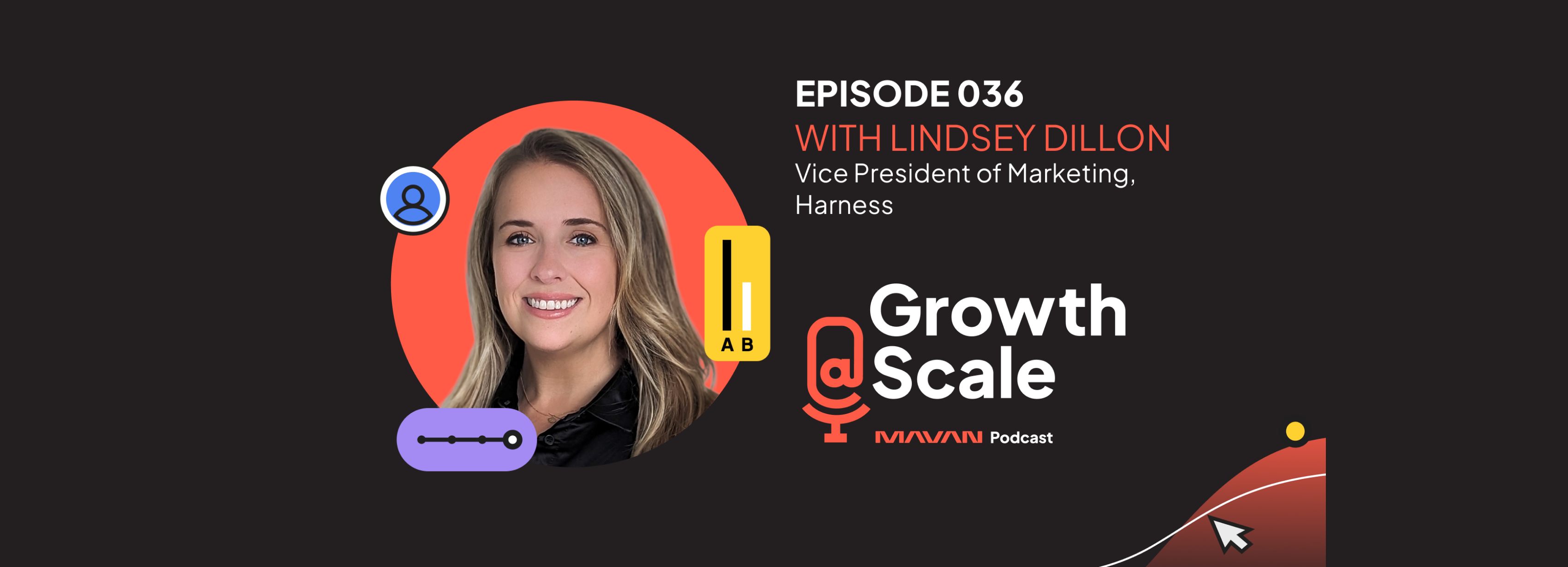- Overvaluing industry experience compared to domain expertise is a common mistake when hiring marketing leaders
- The fundamentals of marketing — like optimizing based on data, message testing, and tracking customer experience — are the same across B2C and B2B brands
- B2B brands are often following B2C brands’ marketing best practices, further minimizing the differences between “industry-specific” marketing strategies
“He has an incredible track record — but only B2C experience, not B2B.”
“Our marketing team would learn so much from her — but she’s never worked in our industry before.”
Sound familiar? These “but” statements are all too common when companies are looking for the right marketing leadership and can lead to passing on possibly transformative hires. They illustrate one of the biggest mistakes I see executives make during the hiring process: prioritizing industry experience over domain expertise.
Finding someone who knows your niche may sound like a slam dunk, but that coveted industry experience doesn’t necessarily translate to great results. When you’re looking for marketing leadership — a CMO, VP, or any kind of strategic partner — it’s crucial to find an experienced professional who can meet your business needs at the current moment and understands the fundamental science of marketing. That may mean hiring someone who isn’t an industry insider.
Identifying the right marketing leader for your business is about understanding the domain expertise required to grow your company. Your need will depend on your company size, product stage, organizational structure, and larger market conditions. Marketing leadership roles and responsibilities tend to vary widely across organizations, so it’s important to identify what skill sets you actually need.
Regardless of industry, the fundamentals must be followed to deliver “the right messaging, at the right time, to the right audience.” That requires understanding how to effectively optimize your data, your messaging, and your customer experience throughout the funnel. And the domain expertise that qualifies a marketer to lead teams in doing this work takes years (sometimes decades) to learn.
True marketing experts apply their skills across many industries
Of course, industry expertise takes time to develop, and all else being equal, it’s useful for your marketing leader to have. But you can pair a marketing domain expert with a part-time industry specialist and find success much more quickly. Give me a data-driven marketer who’s led teams to successful results across different industries any day of the week. That tells me they learn fast, they’re curious, and they’ve built something independently. Within a few weeks, maybe a month, they’ll learn how to apply those skills in your industry.
Sure, they won’t immediately understand the nuanced dynamics and relationships in your industry, and they may lack firsthand familiarity with a few of your marketing channels. That’s OK. While you do want specialists further up on your org chart, your marketing leaders don’t need to be experts at executing across every touchpoint. They need to know where to find and how to hire the best specialists, how to partner with and learn from your industry experts, and how to make decisions about when to pull different levers based on data.
With those core competencies, it won’t matter if the leader’s industry expertise aligns with your company’s target market.

The dissolving differences of B2B vs. B2C marketing
For a long time, the differences between B2C and B2B marketing have been all about numbers and scale. We usually think of B2B marketers as targeting smaller audiences with higher-priced products, with much less data than their B2C counterparts.
Today, those lines are blurring. Calendly has sold its affordable scheduling software to 10 million people, and Canva now has over 75 million users of its freemium design tools. There have always been exceptions to the traditional B2C model: consider hot tubs or other luxury goods with high price points, small audiences, or infrequent interactions.
Regardless of price or potential audience reach, B2B marketers are adopting B2C practices left and right, and the result is a change in how B2B brands spend on marketing and advertising.
According to recent research, 71% of B2B marketers plan on investing more in influencer marketing, while 28% say TikTok is their platform of choice for video content. These are solid plans — because 40% of B2B buyers say they’re using social media when making purchasing decisions. ( Zendesk’s B2B TikTok is a great example.)
Bottom line: You need a marketing mastermind
Think of George Clooney in Ocean’s Eleven. His character Danny Ocean didn’t personally know how to crack safes or rig explosives or pick pockets. However, he did know how to find and hire the absolute best in their field, bring them together, and pull off an incredibly complex heist. Danny’s a mastermind strategist who people like to follow — just like a good marketing leader should be.
Because at the end of the day, channels and tactics are simply tools in a marketer’s toolkit. Out-of-home, paid search, display ads, mailers — not every tool will be the right fit for every business. But knowing how to evaluate data, mine for and learn from customer insights, test and refine messaging, manage budgets, and other fundamentals of marketing? That domain expertise is universally relevant.
Industry experience just doesn’t matter — at least not as much as you think it does. What matters is matching the right talent, at the right time, for the right amount of time to deliver optimal results to your marketing goals.
Book a complimentary consultation with one of our experts
to learn how MAVAN can help your business grow.
Want more growth insights?
Thank you! form is submitted
Related Content
-

Build a Customer-First Product Marketing Strategy with Lindsey Dillon
In our latest podcast episode, Lindsey Dillon, VP of Marketing at Harness, discusses the intricacies of product marketing across B2B and B2C spaces. Discover her unique insights on customer feedback, iterative approaches, and effective leadership.
